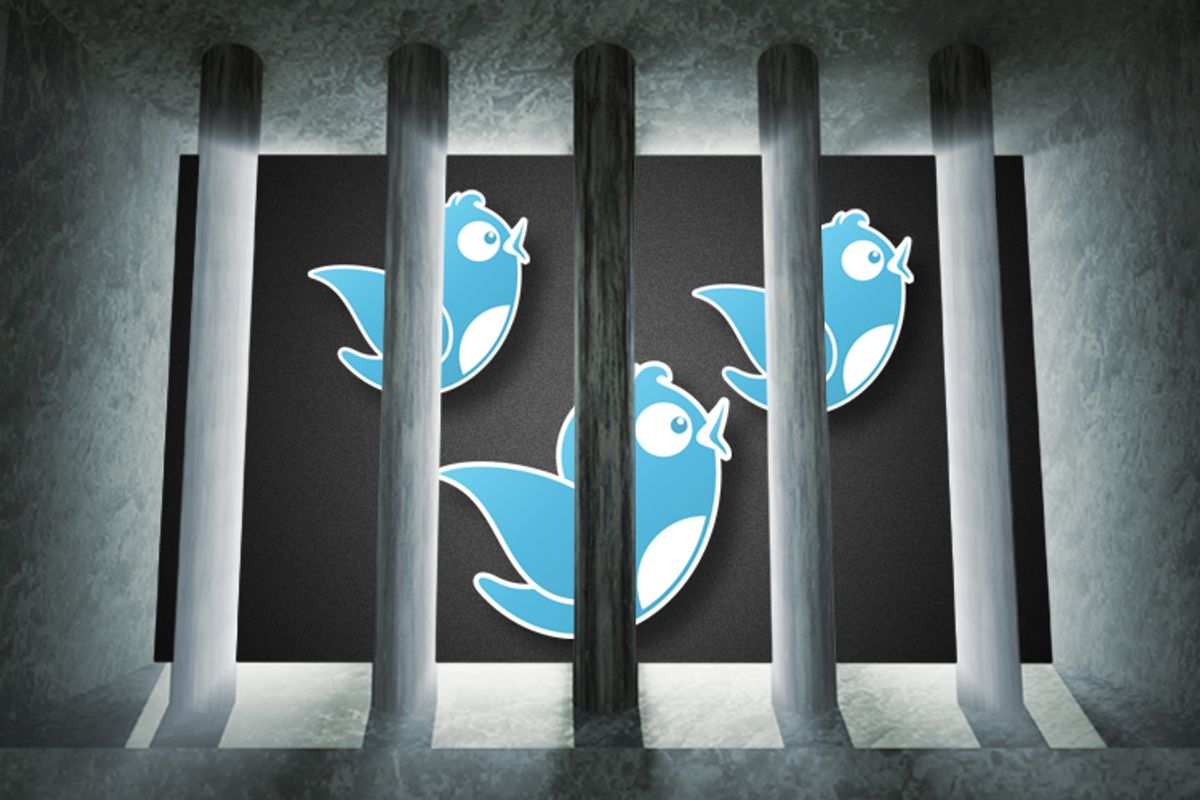After a storm of criticism, Twitter has abruptly reversed its decision to fundamentally change the nature of its block feature.
On Thursday, users began noticing an update to Twitter's blocking function, which, in addition to hiding the blocked person's profile and tweets, had previously also made the blocker's profile and timeline invisible to the blocked person. Under the new version, Twitter explained, "If your account is public, blocking a user does not prevent that user from following you, interacting with your Tweets, or receiving your updates in their timeline." As the company told CNET Thursday, the change was "meant to help people from being trolled by those they've blocked. What Twitter had found was that when someone blocked another person, the blockee would often be upset when they would discover it, and would go on to troll the blocker in other ways, often aggressively. With the new system, blockees have no idea they've been blocked, and those doing the blocking simply cannot see any Twitter activity from the person they're trying to avoid."
But the news did not go over well among the Twitterati. Zerlina Maxwell – who knows a thing or two about being harassed -- swiftly started a Change.org petition, explaining, "This is a huge and very serious problem for people, like me, who have received repeated rape and death threats on Twitter on a fairly consistent basis." She added that the old block "at least forbid harassers from following you and at worst retweeting you into their feed which can simply allow their followers to also harass you." Other users were similarly unnerved. As writer Maddy Meyers noted, "In the past, blockees couldn't follow, RT, or expand convos. That meant they GOT BORED FASTER, AND WENT AWAY." And Brian Stewart pointed out, "Look, no one thought Block as it was provided comprehensive protection. What it DID do was complicate casual abuse. Now it facilitates it."
As a promiscuous blocker, I watched the whole debacle unfold Thursday and into Friday unnerved as well. I have only once blocked someone I knew in real life. I have blocked a handful of pundits and public figures, to make it harder to punish myself with hate-reading them. The rest of my 532 blockees are just random trolls who've said mean, stupid, threatening -- or mean and stupid and threatening -- things directly to me. I block them with extreme prejudice. I doubt many of them even notice – they're usually just responding to something I've said and feel a need to declare I'm going to hell or suggest I die of cancer. I certainly have no illusions that I'm punishing them by cutting off their access to my pearls of wisdom about what I'm baking this weekend, nor do I ever harbor any false sense that anything a person with a public profile posts on Twitter is remotely private. Instead I do it so I'm not even remotely goaded into the pointless exercise of engaging with them, and so I don't have to have some stranger's words, designed to make me feel bad, strewn into my path. I do it so the dregs of Twitter, in particular the ones who spend a lot of time telling women to shut up or they're going to hurt them, have a little less access, and so that I, in return, have a little more control. Life is way too short for that kind of toxicity. And conversely, suddenly having the ability to read anybody who's blocked me has never once seemed like a Twitter feature I'd give a damn about.
By the time the hashtag #restoretheblock became a rising trend, Twitter had moved into deep damage control mode. A new announcement was quickly made, in which Twitter stated, "We have decided to revert the change after receiving feedback from many users – we never want to introduce features at the cost of users feeling less safe. Any blocks you had previously instituted are still in effect ... We believe this is not ideal, largely due to the retaliation against blocking users by blocked users (and sometimes their friends) that often occurs. Some users worry just as much about post-blocking retaliation as they do about pre-blocking abuse. Moving forward, we will continue to explore features designed to protect users from abuse and prevent retaliation."
No, it's not ideal. But it's better. Turning the block feature briefly into a mere mute feature was a move of enforced passivity. It let people who were being trolled retain the small luxury of not having to see the trolling, but it did nothing to the troll. Nothing. Consequences for being a jerk, however small, matter. Those little hurdles that make it harder for them to be creeps matter. They tell the members of a community that this is not a community whose members are entirely powerless against them. And in the end, there's a certain poetry to the way in which a controversy over how to better help users not have to read tweets was resolved when Twitter took the time to see what its own users had to say.



Shares